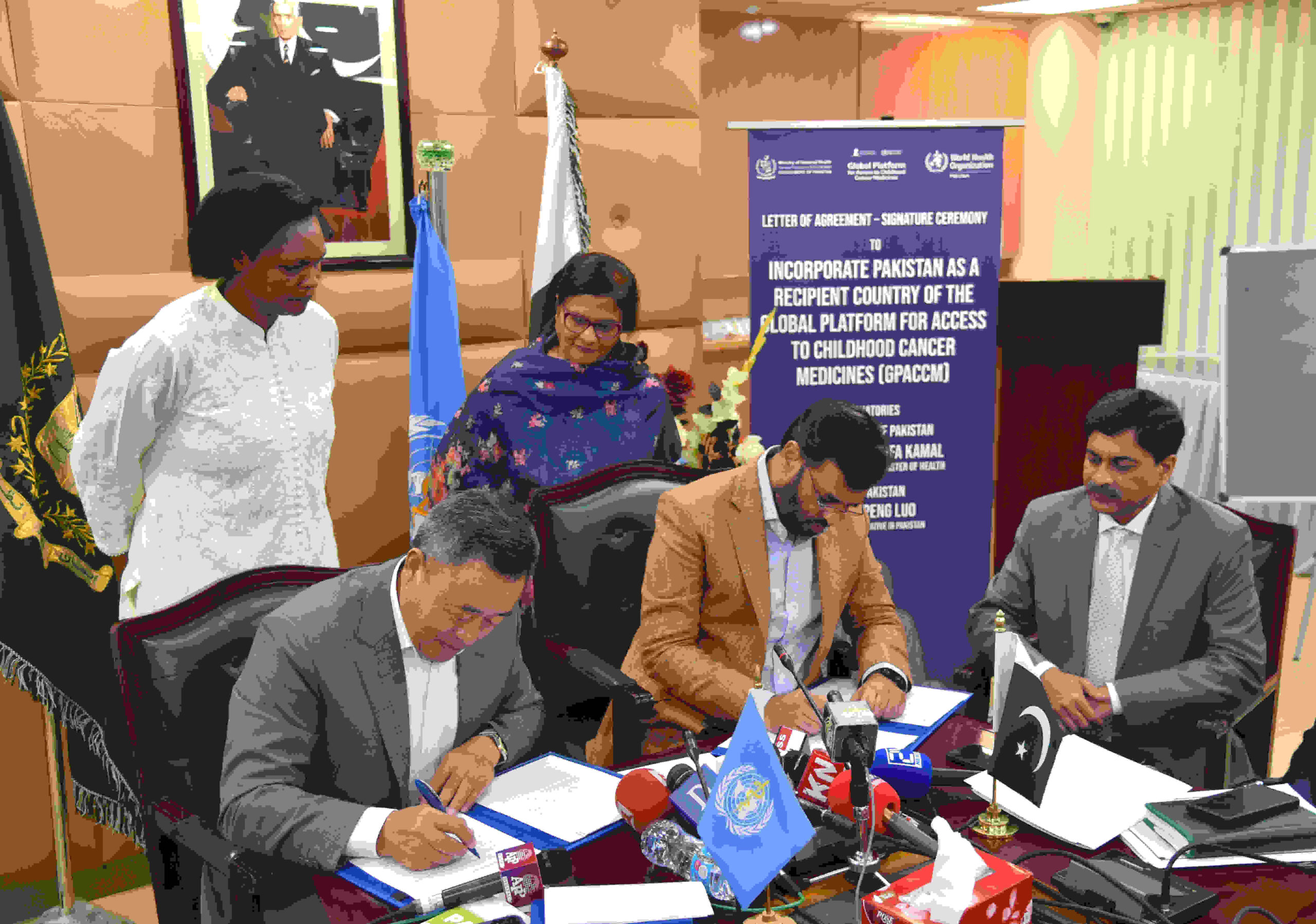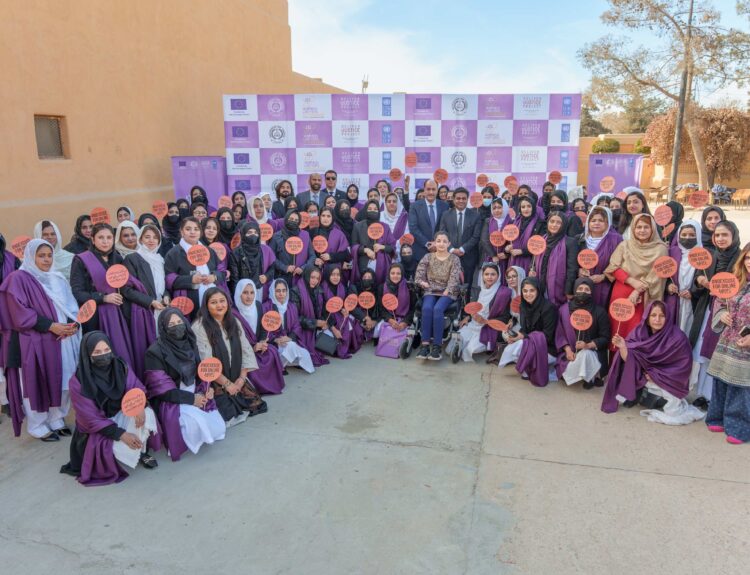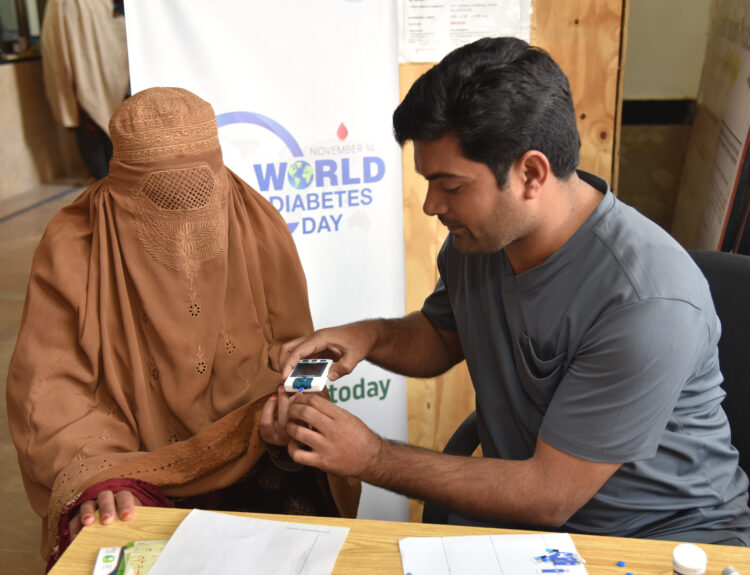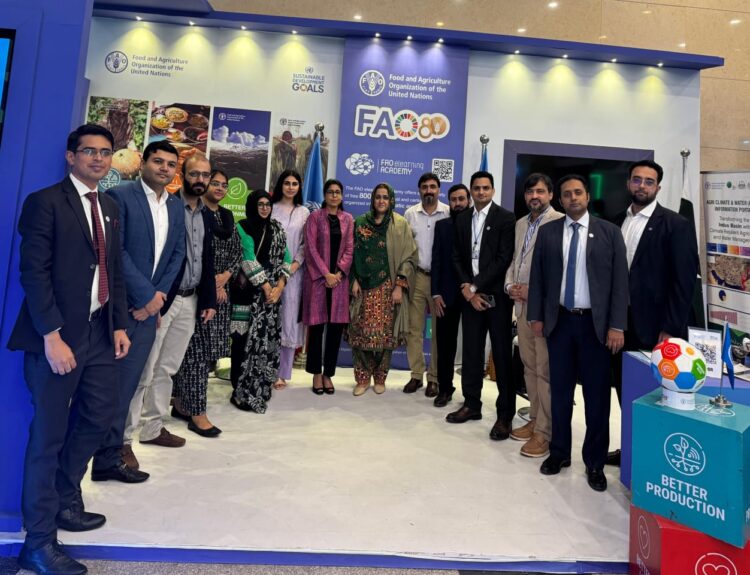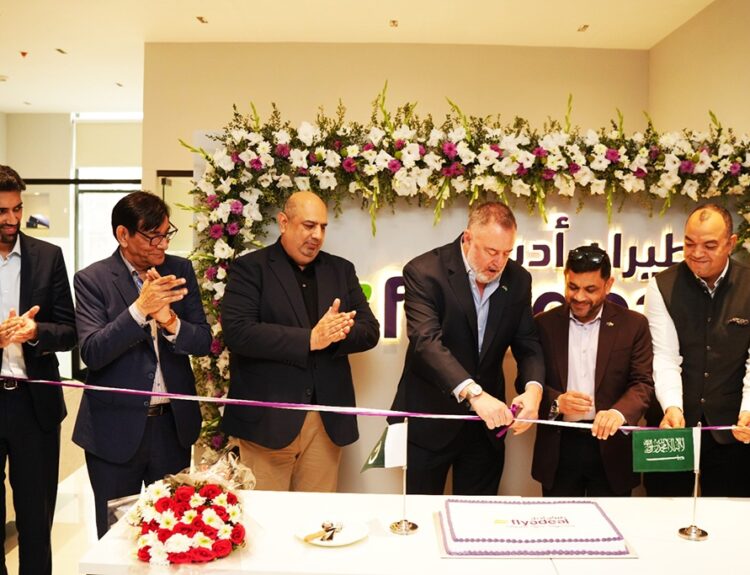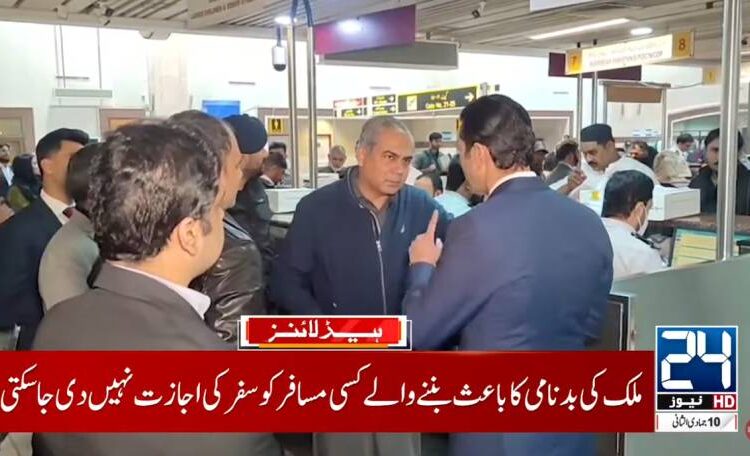The World Health Organization (WHO) and the Ministry of Health formalized on Tuesday Pakistan’s participation in the Global Platform for Access to Childhood Cancer Medicines (Global Platform) to provide quality-assured medicines – free of cost – to children affected by cancer in the country, where over 8000 new cases are diagnosed annually.
Stated in a UN press release the agreement brings new hope to children suffering from the disease in Pakistan and aims to increase their survival rate from 30% to 60% by 2030. Limited access to treatment is one of the main factors behind the low survival rate in the country, compared to a survival rate of 80% in higher-income countries.
Pakistan is the second country in the Eastern Mediterranean Region to join the Global Platform, co-founded in 2021 by St. Jude Children’s Research Hospital and WHO to provide an uninterrupted supply of certified cancer medicines to low- and middle-income countries (LMICs). The initiative works in collaboration with the United Nations Children’s Fund (UNICEF), that will be responsible for procuring medicines and delivering them to Pakistan.
In addition to the provision of medicines, WHO will continue to support Pakistan’s Ministry of Health and provincial authorities with technical guidance, resources, and operational support to fight childhood cancer. The agreement, signed by Federal Health Minister Syed Mustafa Kamal and WHO Representative in Pakistan Dr Dapeng Luo, will remain in force until 31 December 2027 and may be extended by written agreement of the parties.
- pinup casino
- mostbet
- 1 win
- mostbet
- mostbet online
- 4rabet pakistan
- mostbet
- pinup
- мостбет казино
- mostbet az
- pinup
- mostbet casino
- luckyjet
- snaibet
- 1win
- pinco slot
- mostbet kz
- 1 vin
- pinup
- mostbet uz casino
- pin up
- aviator game
- pinup az
- pin up
- mostbet uz
- pinup
- pin up
- 1win casino
- mosbet az
- pinap
- pinko casino
- 1vin
- mostbet
Pakistan becomes the second country in the region to join the Global Platform for Access to Childhood Cancer Medicines, aiming to address the lack of treatment affecting at least 50% of pediatric patients and to increase their survival rate from 30% to 60% by 2030.
“Today is a big day for Pakistan, because through this agreement we are going to receive medicines to treat children who have cancer. This is the way forward. We are thankful to WHO, the Global Platform, UNICEF, and all partners who have made this possible and give our children access to treatment to fight this disease. If we are able to save one life through this collaboration, we are saving mankind,” said Federal Health Minister Sayed Mustafa Kamal.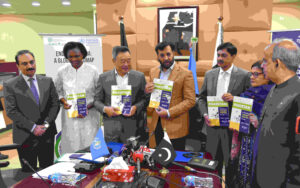
“No child affected by cancer should die because of lack of access to treatment, including quality-assured medicines. WHO will work side by side with the Ministry of Health and partners to save lives and leave no child behind, no matter where they live or who they are,” said WHO Representative in Pakistan Dr Dapeng Luo.
It is estimated that 400 000 children develop cancer each year. Close to 90% of them live in LMICs, where survival rates are less than 30%, meaning 7 out of 10 children affected by cancer do not survive.
